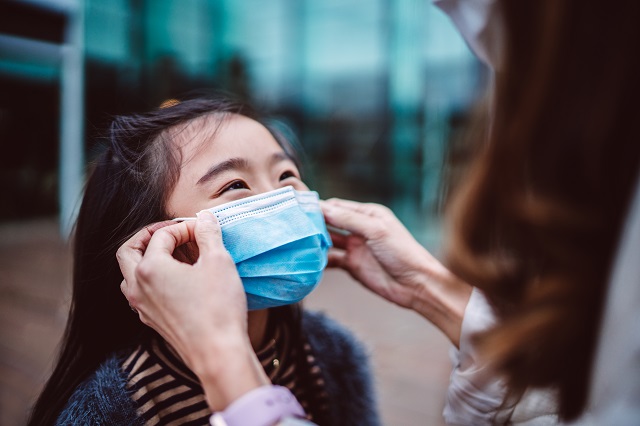
Credit: Tang Ming Tung / Getty Images
While some of us may be tempted to put our hopes in the development of a miracle vaccine or magical cure for the new coronavirus, holding out for a perfect solution could be unwise. The rapid and extensive use of a number of imperfect prevention and treatment methods, is the key to turning the tide, according to Dr. Joshua Schiffer.
Schiffer, an associate professor in the Vaccine and Infectious Disease Division at the Fred Hutchinson Cancer Research Center, discusses the benefits of some effective, although far from flawless, tools in the battle against COVID-19. It’s an approach that reminds him of swiss cheese, he says, because “each of these strategies has holes but, if you apply all of them, fewer infections break through.”
Three Takeaways:
- A number of inexpensive and “imperfect interventions” should be rapidly ramped up in the U.S. to reduce infection rates and save lives, as they have in other countries, including regions with less advanced health care systems, says Schiffer. For example, his research group has carried out mathematical modeling which shows the significant impact that widespread mask-wearing can have in lowering transmission rates and potentially the severity of sickness.
- Schiffer is critical of the slow development and testing of medicines such as antivirals, during the pandemic, which can limit levels of infection and inflammation. The physician says even partially effective therapies can prevent deaths (and hospitalizations). He also believes that some treatments could be more successful if used in earlier stages of the illness, as is the case with other viruses such as H.I.V., influenza and Ebola.
- Throughout much of the U.S. and in Europe, the average person with coronavirus currently infects about one other person. “Flirting with an effective reproductive number of one” is too close to a dangerous tipping point, according to Schiffer. He says, the reproduction rate needs to come down, and controlling “superspreader events” with intervention efforts, is important. When it comes to early detection of SARS-CoV-2, widespread and frequent use of rapid and low-cost paper-strip tests would be helpful too, according to Schiffer.
More Reading:
- Learn more about Schiffer’s imperfect toolkit in his op-ed for The New York Times.
- This article in The Atlantic has some lessons from other countries on “How to Avoid A Winter COVID Catastrophe.”
- Looking for some good news? Find out why there’s, “A Dose of Optimism, as the Pandemic Rages On.”

